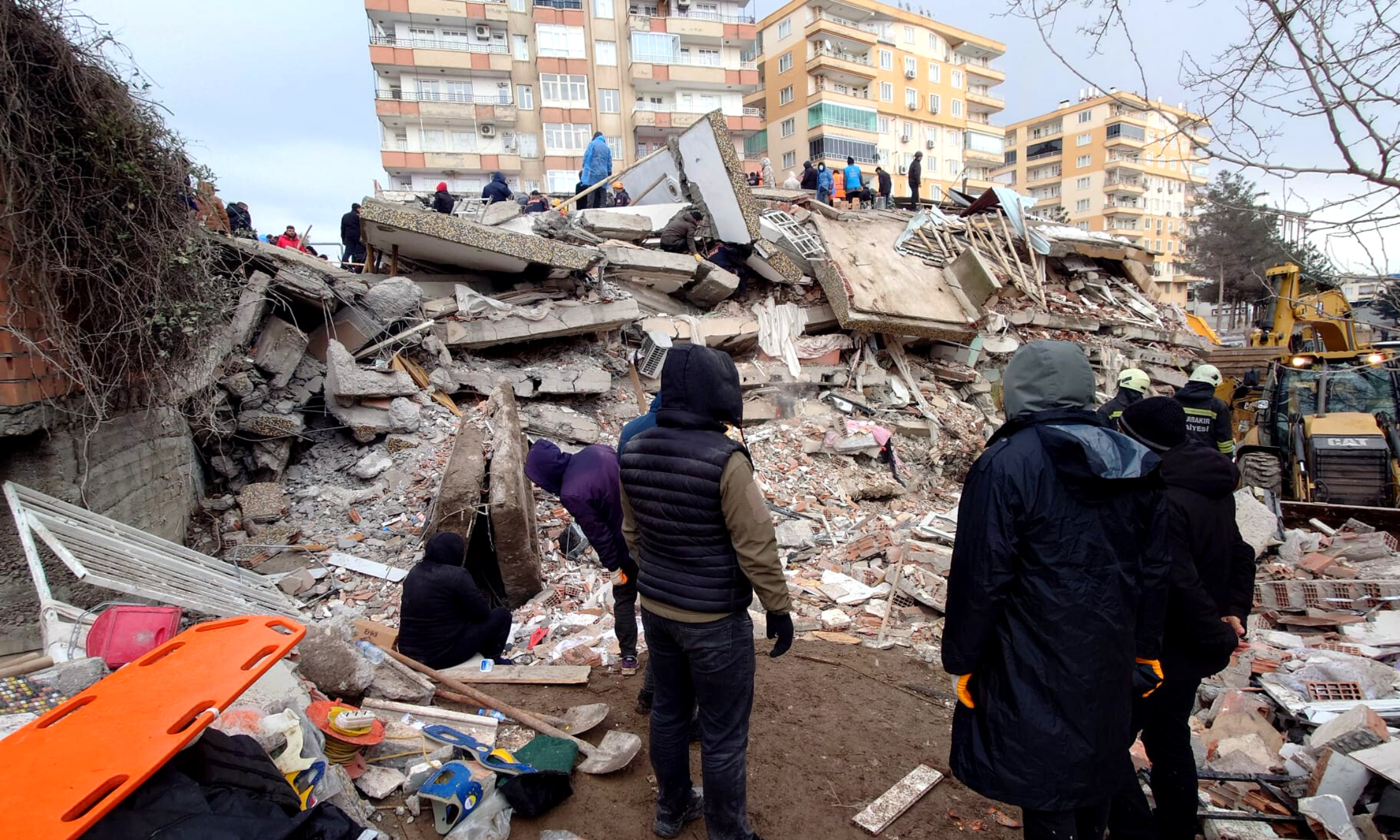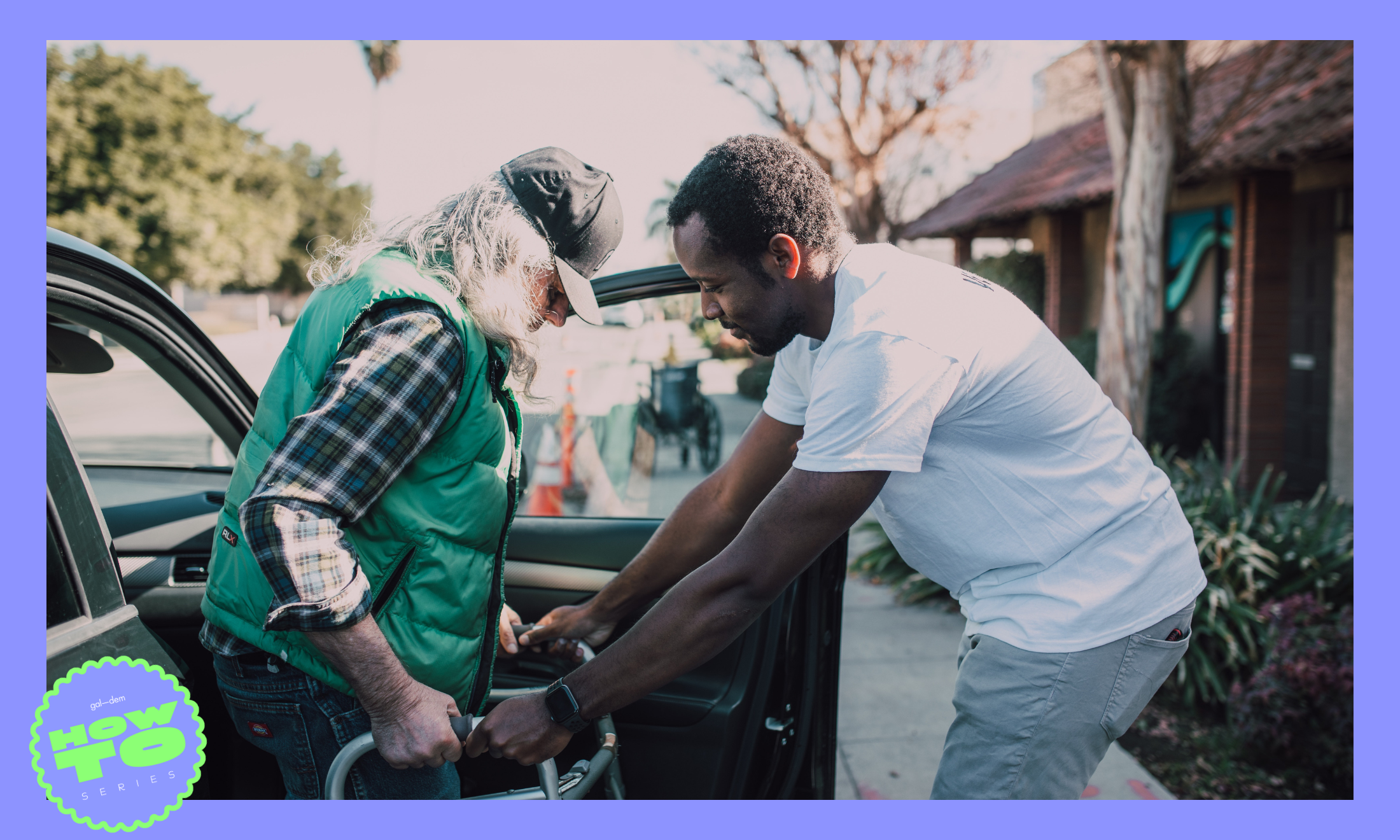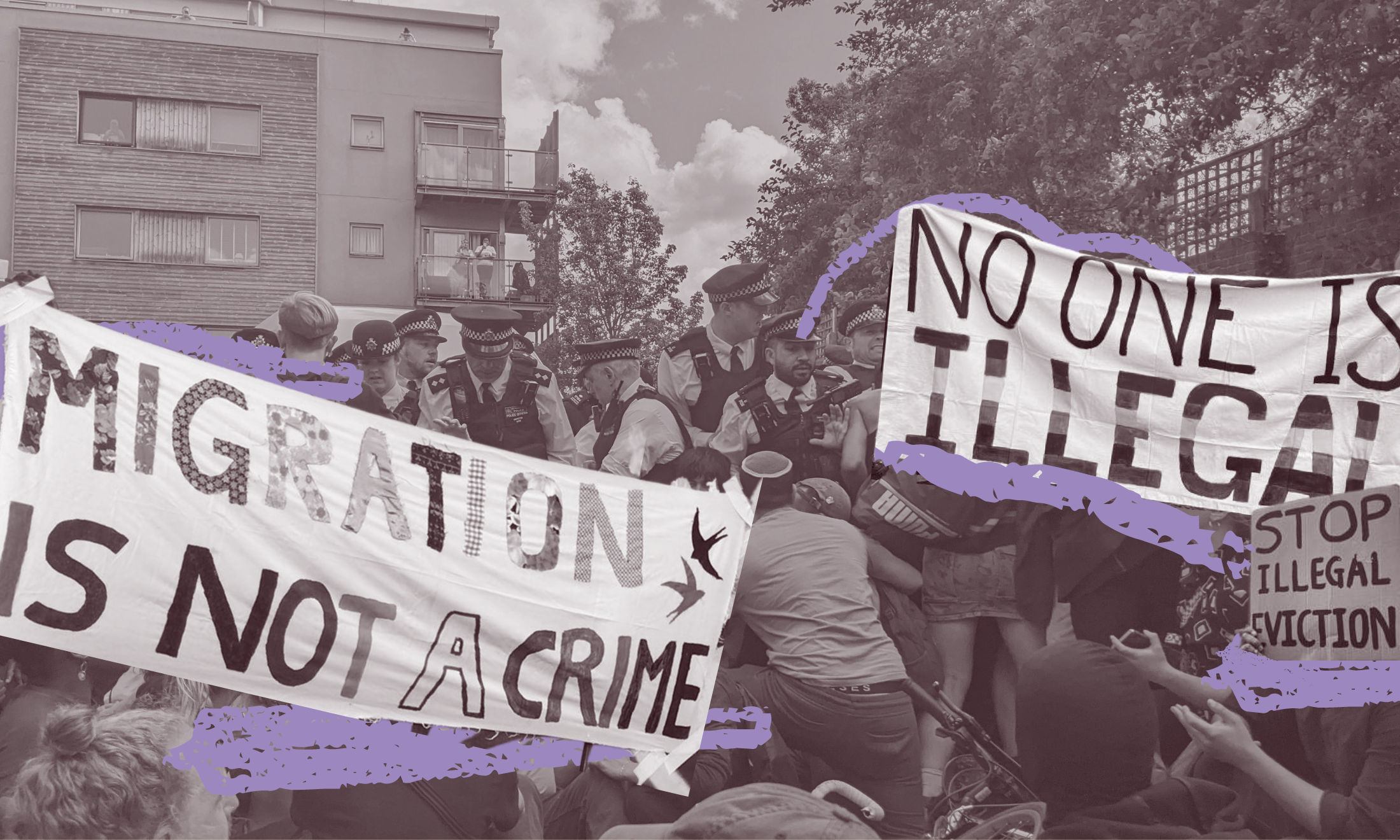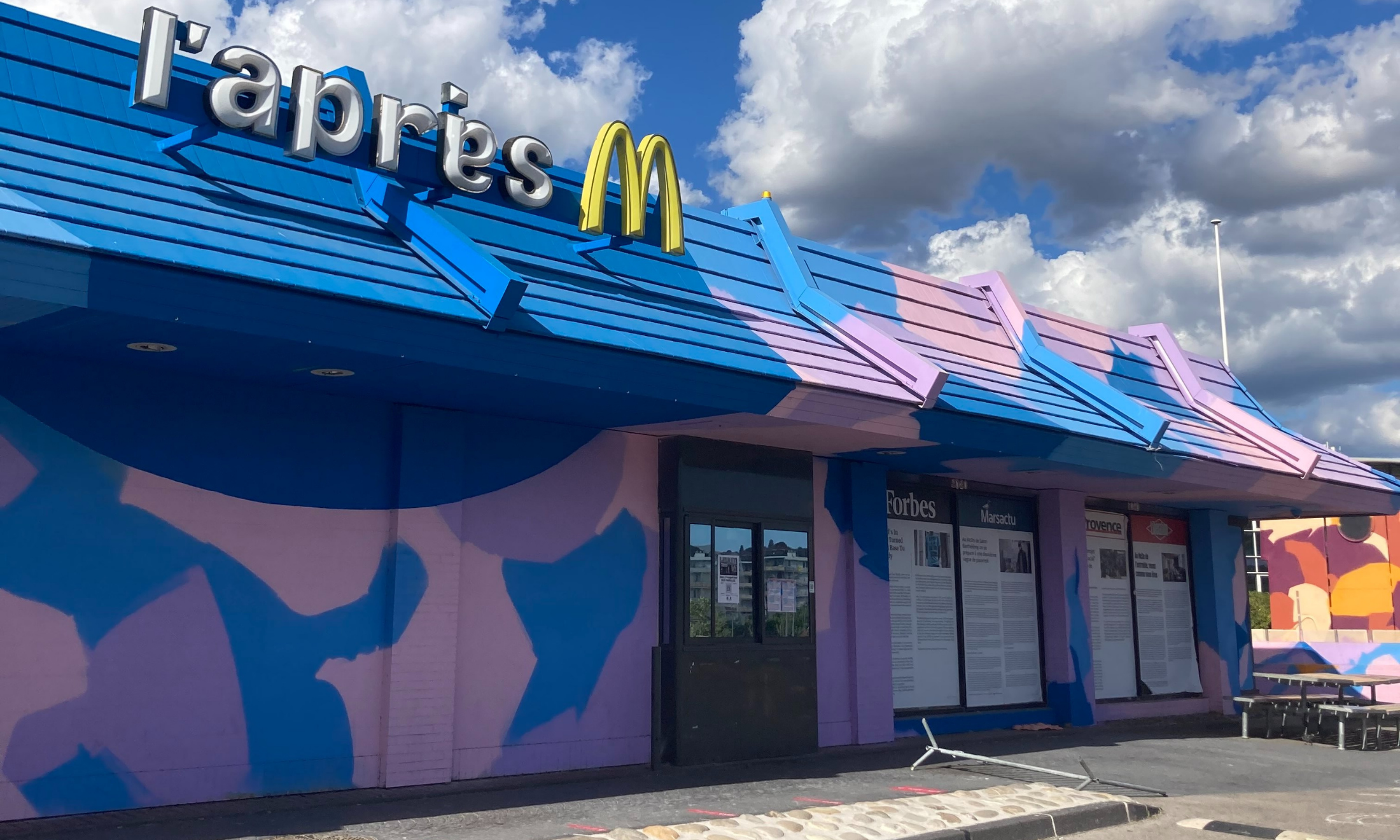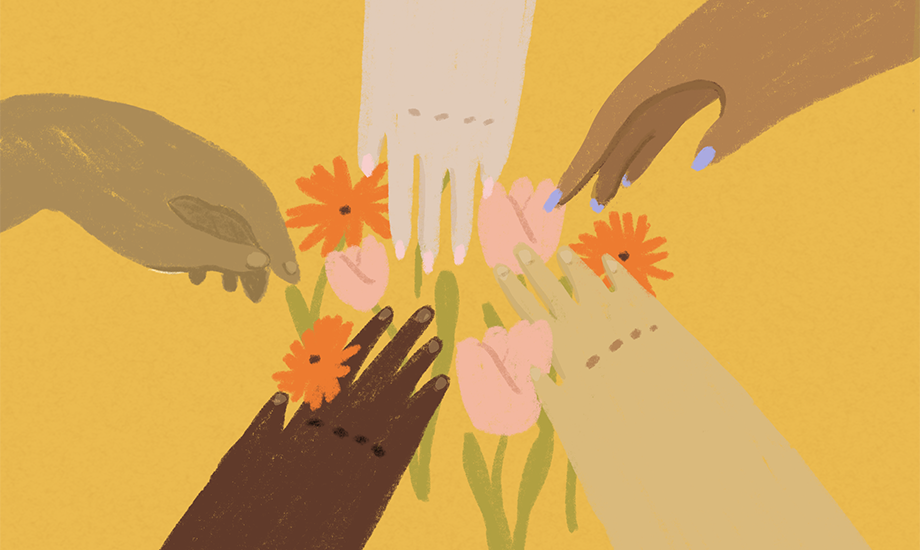
Illustration by Alex Smyth
‘It’s impossible to step back’ – meet the mutual aid volunteers who persisted in the pandemic
One year on, many people have given up on mutual aid work. Not these women.
Priyankaa Joshi
23 Mar 2021
A year ago, as coronavirus was declared a pandemic and the UK was plunged into a national lockdown, thousands of informal mutual aid groups sprouted up across the country. Stepping in where the government failed to keep people safe, these autonomous groups were formed, mainly via Facebook and WhatsApp, to help neighbours support each other, share resources and assist vulnerable members of their community. By June, there were as many as 4,000 local groups according to Covid-19 Mutual Aid UK, the central organising network.
“Mutual aid is grounded in the principles of solidarity, dignity and respect,” explains Emma O’Dwyer, a political psychologist at Kingston University. “It works against unjust hierarchical relations and authoritarian structures normalised under capitalism.” By definition, it is a horizontal mode of organising which rejects the traditional charitable distinction between the volunteer and the recipient.
Of course, mutual aid is nothing new. Eshe Kiama Zuri, founder of UK Mutual Aid, a grassroots support group for marginalised people, offers a reminder that it has deep roots in communities of colour. “Black and multiply-marginalised people have been organising this way for years to help each other survive,” they tell gal-dem. But undoubtedly, Covid-19 brought the term into prominence as over a million people became involved with community support in response to the crisis.
One year on, as the pandemic subsides and mutual aid is no longer a buzzword, the number of people offering support has declined and many of the groups which were formed at the start of the pandemic have disbanded. “A lot of these mutual aid groups were set up for middle-class white people. They aren’t providing support anymore because they were never designed to be sustainable structures for marginalised groups,” says Eshe.
But what about the people who have continued with their mutual aid work? We spoke to three women who have kept up their efforts throughout the pandemic to hear about their experiences. Here’s what they told us.
“Solidarity not charity remains at the heart of what we’re doing”
“As is the way for many Black and brown women, I’ve been involved in mutual aid since I was tiny, just through my friendship groups and family network,” says MJ a 31-year-old engineering manager based in London.
At the end of March, MJ joined the Islington Mutual Aid group to see what she could do to help out in her local community. Given her background in tech, she stepped in to help set up a website and soon after became tech lead of the team supporting national efforts. “My role was to see how we could progress mutual aid through tech,” she explains.
One year later and MJ is still heavily involved in mutual aid work. In fact, she has taken things one step further by starting her own community interest company. Community Laptops is an initiative that aims to get computers and devices to marginalised groups in a bid to tackle digital poverty.
“As soon as you get involved in this work, it’s impossible to step back,” she says. “I feel like the only thing stopping me is my actual capacity!”
MJ admits, however, that mutual aid work can be mentally exhausting. “Time is one thing – it’s like a 50-hour-a-week job but on top of that, you’re working with people who are facing all sorts of challenges. It can definitely have an impact on your mental health.”
What about the positives? “The way the community pulled together makes you feel hopeful but I’m so reluctant to put a positive spin on this,” she says. “We need to address the fact that this is a completely avoidable set of circumstances. We’re having to prop each other up in so many different ways because of a lack of will from the government to provide basic support. It feels shit to be honest.”
One of the reasons MJ feels she has been able to continue her mutual aid work is because of the Islington group’s structure and its sensitivities around language. “Solidarity not charity remains at the heart of what we’re doing and I think that’s why the group is still going really strong.”
“Even though we were in a bloody crisis, the group was a happy place for people in the community”
Amna Abdullatif, 37, is a Labour councillor in Ardwick, central Manchester. When the pandemic kicked off, she set up the Ardwick and Longsight Covid Mutual Aid Group on Facebook.
“At the start, there was a lot of work,” she says. “For instance, the food provision from the council wasn’t adequate for the diverse communities we were serving so we provided culturally and religious appropriate food for them.”
But by the summer, as people were returning to work, it became a struggle to get volunteers to take on jobs. As such, Amna quickly realised the group needed to evolve. “We stopped the majority of our urgent work in August but before that, we put mechanisms in place to ensure the different community groups had access to support and funding once we stopped,” she explains. “Now, the group functions as a neighbourhood network where we share information and ideas and discuss the challenges we face as a community.”
There are currently 230 people in the Facebook group, with members posting on a regular basis. “I think it’s still so active because even though we were in a bloody crisis, the group was a happy place for people in the community,” she says. “We were discussing really horrific things at times but our meetings were full of positivity, respect, care and even fun.”
Will mutual aid be a part of Amna’s work moving forward? “Absolutely,” she says. “In our ward meetings, we talk a lot about the learnings from the mutual aid group and how we can embed them into our plans for Ardwick.”
For Amna, the biggest lesson has been the value of flexibility. Working in the public sector, she says there is little room for manoeuvre. “With the mutual aid group, we had the freedom and flexibility to respond to people’s needs quickly and easily,” she describes. If someone on the team had a suggestion about how to do something, they would give it a go and see if it worked. If not, they would try something else. “It was a huge learning curve and I want to embed this flexibility into my work.”
“I definitely see the potential in mutual aid as part of a longer-term community organising project”
Elena Blackmore, a 36-year-old researcher from Machynlleth, Wales, got involved with her town’s mutual aid group at the beginning of April 2020. After helping with the initial setup, which included organising a helpline, leafleting and finding volunteers, she, along with a few friends, decided to set up a solidarity fund as part of the mutual aid group.
“It became quite obvious early on that a lot of people were in precarious work and were going to be severely financially impacted,” says Elena. “I said it would be great to find some way of redistribution and one of our friends saw the London Bi Pandas had set up a solidarity fund so we decided to focus our efforts on that kind of mutual aid.”
Elena and her friends started fundraising and set up a website with a form for people to fill in if they needed money. “It’s very much on a ‘no proof needed’ basis with the principles of solidarity and mutuality,” she describes. So far, they have raised £25,000 and have given out over 200 grants of £100 pounds to anyone who needs it.
For Elena, it was particularly heartening to see people give generous donations and set up direct debits for the fund without trying to assert any power about where the money should go. “We made it clear that we weren’t going to change our principles and people really respected that.”
But Elena is concerned that the fund can no longer be described as mutual aid. “We really wanted this to be a place of solidarity but it has turned into more of a charitable enterprise and I don’t feel comfortable about that,” she admits. “People are coming back for repeat applications so we’re having to work out what it means to be giving out money and having that power.”
“We’ve got some really important conversations to have about how we can move forward,” she continues.
Nevertheless, Elena is committed to her mutual aid work and is determined to keep going. “We’ve built some really strong relationships doing this difficult work together as a community,” she says. “I definitely see the potential in mutual aid as part of a longer-term community organising project.”
“Mutual aid groups have the potential to play an important role in a post-Covid future”
O’Dwyer certainly believes our energy and appetite to participate in community support will continue beyond the pandemic. “Many people will have developed a different political awareness through their involvement in mutual aid. They have become more connected to their communities and feel their actions can make a difference,” she says.
“We know this to be a crucial predictor of future political action from social psychological research so mutual aid groups definitely have the potential to play an important role in a post-Covid future,” she adds.
When MJ, Amna and Elena started their mutual aid work last year, the focus was on plugging the gaps to help tide people over during the crisis. A year later, all three women have broadened their missions, using mutual aid to build power within their communities.
For those who hope to continue their mutual aid work in the long term, Eshe, who has been running UK Mutual Aid since 2018, offers some words of advice. “Taking on the burden of other people’s problems as well as your own can be really difficult. Remember that your own mental health is important and you deserve mutual aid too,” they say.
For further advice on how to ensure your mutual aid efforts are sustainable, get in touch with the team at UK Mutual Aid to learn about how they function. Visit their website to find out more.

Britain’s policing was built on racism. Abolition is unavoidable

How Pakistan’s Khwaja Sira and transgender communities are fearing and fighting for their futures

Their anti-rape performance went viral globally. Now what?


